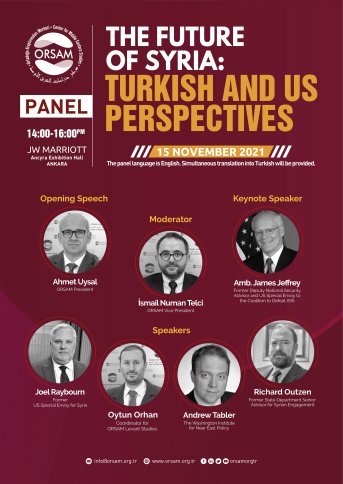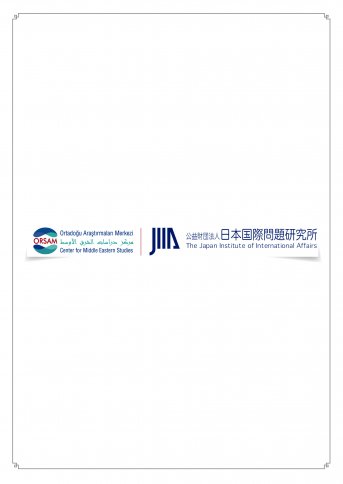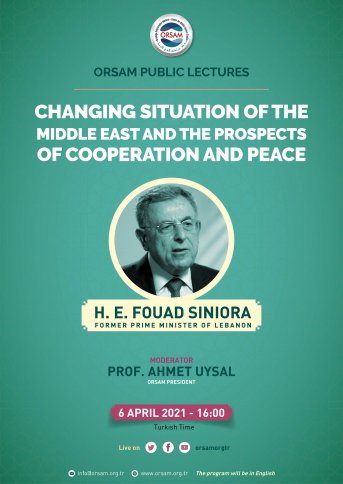
The Future of Syria: Turkey and the USA Perspective Panel Press Release
A panel named "Future of Syria: Perspective of Turkey and the USA" on November 15, 2021 has been organized by ORSAM. Former US Special Representatives for Syria James Jeffrey and Joey Rayburn, The Washington Institute Near East Studies Specialist Andrew Tabler, Richard Outzen, former chief advisor on Syria at the US Department of State, and Oytun Orhan, ORSAM Levant Studies Coordinator were the speakers of the panel.
On the opening speech of the panel, ORSAM President Prof. Dr. Ahmet Uysal has emphasized the need for cooperation between Turkey and the USA in order to ensure a political transition in Syria, to rebuild the country, and to put pressure on Russia and the Assad regime. As honorary speaker of the panel, Ambassador James Jeffrey, pointed out that the Assad regime refused to compromise for a political solution, and emphasized that Russia's aim was to return to the 19th century and when combined with Iran's interests, there was a threat to regional security arrangements. He also stated that the time has come for the Biden administration to clarify its Syria policy and share the policy details with the international community.
In the panel, which is moderated by ORSAM Vice President İsmail Numan Telci, Joey Rayburn as the first speaker has emphasized that the parties proposing normalization with the Syrian regime should present a realistic perspective for a stable Syria. Rayburn has also stated that the Syrian regime has become the biggest narco-state in the world and that it earns a large income from the drug trade, and that this problem will get worse day by day. Next speaker of the Panel, Oytun Orhan, has stated the basics of Turkey's Syria policy as fighting against terrorism, ensuring the territorial integrity of Syria, preventing new migration waves and finding a political solution to the crisis according to UNSC Resolution 2254. Orhan has mentioned that Turkey is trying to create room for maneuver in Syria by taking advantage of the differences between the USA and Russia. However, he has also stated that there are signs of a dialogue between these two powers and that this should also be taken into account. Andrew Tabler, who took the floor as the third speaker, stated that Donald Trump's repression policy towards the Syrian regime is multi-layered. He listed these layers as economic sanctions, political isolation from the international community and military presence in the region. According to the Tabler, Arab countries monitor that the US is re-evaluating this approach and he states that the effect of economic measures is followed by the Assad regime in achieving reconciliation in the negotiations. The last speaker, Richard Outzen, has pointed out that although existing of communication channels between the US and Turkish officials regarding the management of tensions between them, problems between the parties still continues which shows that cooperation and coordination are not sufficient. According to him, the de-escalation zones in Syria are not sustainable initiatives. Outzen emphasized that the possibility should be taken into account that these regions would be occupied by Russia, the Syrian regime and Iranian-backed forces in the near future. The panel completed after the question-answer session.





